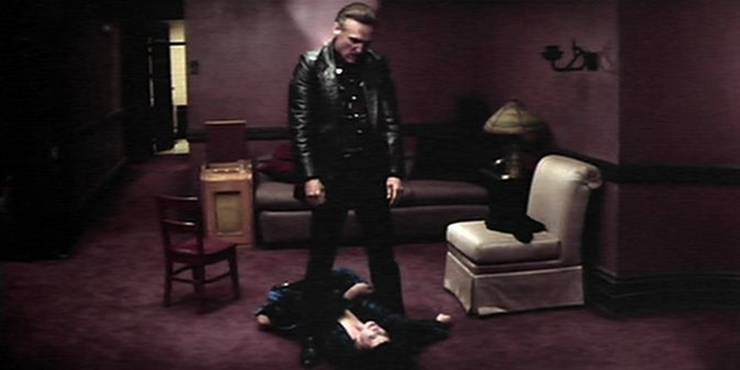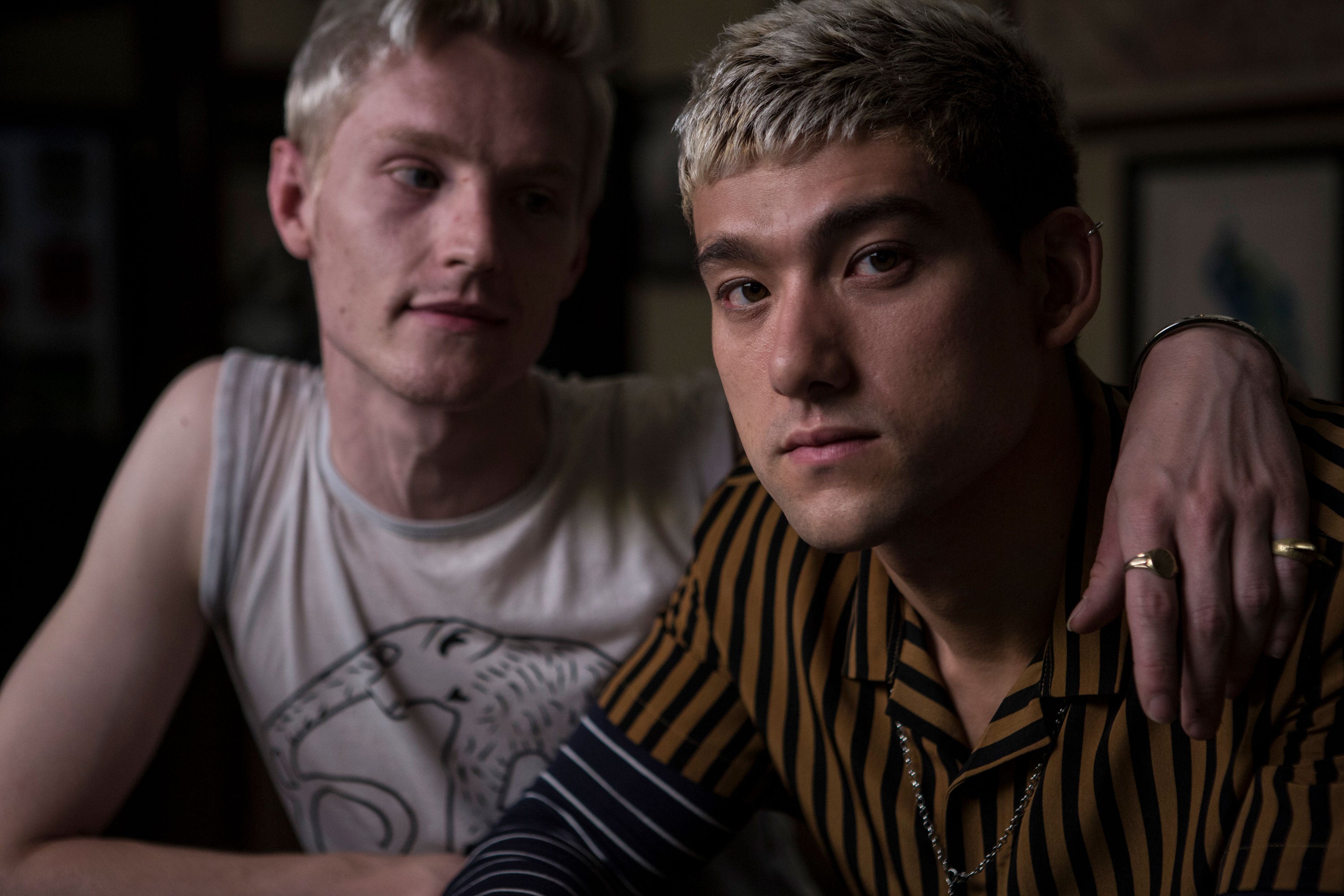 |
| Rodney (front), hanging out in one of his many nighttime haunts. Will Sharpe turns in a great performance as the tough-but-tortured man. |
Tuesday, August 25, 2020
Idiot Boxing: Giri/Haji (2019)
Monday, August 24, 2020
The Raid: Redemption (2011)
Director: Gareth Evans
A martial arts/action movie tour-de-force that I finally got around to watching. I can see why it quickly became such a beloved classic among fans of the genre.
The story isn't terribly complex: in a beaten-down, urban neighborhood in Indonesia, a S.W.A.T. team launches an assault on a building held by a violent, ruthless drug kingpin. The team has to battle its way to the drug lord on the top floor of the blasted concrete structure, fighting through wave after wave of thugs and henchmen armed with guns, knives, and some ferocious martial arts skills. One of the S.W.A.T. members, Rama, is especially adept at both fighting and seeing the larger picture at work, and he becomes one of the very few members of his team to get beyond the first few floors of the death trap building.
The Raid: Redemption goes all out as an action/fighting movie. Although I only just saw it for the first time, I remember hearing about it from a few action-loving friends back around 2012, when it really wasn't shown much in the U.S. Now I can see what they meant. After only about five-minutes of barely-necessary but simply effective "plot" setup, things go totally nuts for Rama and his team. They're getting sniped from nearby buildings, blasted from floors above them, and generally attacked from every angle imaginable. They acquit themselves fairly well and fight back admirably, but the tension and carnage are never more than one minute or one corner away.
So it's one thing to just pack a movie with action. More importantly is whether the action is visually engaging. The answer for The Raid: Redemption is a definite "Yes!" However, this answer will of course be dependent on how one feels about action scenes. Some people can't get enough well-done fighting and action scenes in movies. Other people - like my wife - immediately tune out the moment a car chase, fistfight, or gunbattle erupt in a movie. I find myself somewhere in the middle on this - I'll remain engaged for a while in an action sequence, as long as it shows some visual and choreographic creativity. But my engagement will usually wear down after a while, if the action overwhelms the emotional or narrative elements of the movie. With The Raid, I did eventually grow less interested in the on-screen mayhem, despite recognizing how extremely well-done all of the action elements were executed. But if you dig intense, well-shot fighting in many forms, then you'll love the action in this movie. There's no "shaky cam" work, and the brutality of the confrontations is palpable at all times.
 |
| This one key fight scene conveys just some of the intensity of the combat and the rather stark backdrops for much of the action. Still, everything is lit and shot impressively. |
Will I watch this again? Most likely not. I'm not a pure enough action fan to feel the need. However, I'll probably check out the sequel, The Raid 2, as it is also considered a very influential modern action movie. I'll be curious to see what writer/director Gareth Evans was able to do with a bigger budget, though I won't expect there to be much more beyond a similar fireworks show of punching, fighting, and shooting.
Friday, August 21, 2020
In A World...(2013)
This was a rewatch, and it was well worth it. Liked this movie when I saw it in the theater back in 2013, and I still like it.
The movie follows Carol Solomon (Lake Bell), a voice coach and voice actor in Hollywood who is trying to break into a larger role. The daughter of a highly successful movie trailer narrator, Carol faces an uphill battle in the male-dominated, chauvinistic world of movie-trailer voice-overs. A little stroke of luck opens a small door for Carol, which she then parlays into ever-better voice-over gigs, eventually landing a chance to voice the trailer for a massive, blockbuster upcoming movie franchise. However, there is some very stiff competition for the job, including her self-important, chauvinist father. Carol tries to keep her eye on this occupational prize, all while juggling several rough hiccups in her personal and family lives.
In a World... is a really fun look into a part of the movie business that many of us don't ever see and probably never think much about. And it's a world that writer, director, and star Lake Bell, a highly accomplished voice-over artist, knows plenty about. Despite seeming to be a minor, almost inconsequential part of a visual medium, she offers us a look at a cut-throat world filled with massively outsized egos and comically competitive scrambling. Once the dash for the coveted movie voice-over job is on, it's hard not to be invested in Carol's prospects of winning the gig. Unlike many of the "behind the scenes, movies about movies" shows that we've seen over the years, the stakes here are smaller on one level, but they also carry plenty of weight for the authentic characters we get here. In addition to Lake Bell, her father is played by longtime voice-over master Fred Melamed, who brings a ton of comic acting chops to the movie. These two and others help make a "small" world carry some actual weight for the people who dwell in it.
 |
| The voice- and sound-obsessed Carol (left) surreptitiously records her unwitting sister. Plenty of humor in the movie comes from Carol trying to get various recordings for her work. |
I highly recommend this one to anybody who enjoys movies about movies or smart comedies about people trying to break through barriers to flex their talent.
Saturday, August 15, 2020
John Wick 3: Parabellum (2019)
Not sure why I didn't review this one when I first saw it in theaters last year, but oh well. This third "chapter" in the John Wick series continues to do what the previous two did - provide slick, exceptionally well-executed, intense action within a visually stunning setting dark mythology. Like it's predecessor, Chapter 2, this one was arguably a bit longer than necessary, but was overall good.
The previous movie ended with John Wick, assassin extraordinaire, being declared "Excommunicado" by the vast and rules-dominated system of criminals and professional killers, meaning that he is now hunted by hundreds of his fellow killers-for-hire. He is also without the benefit of any legitimate form of sanctuary - something which provided him a great advantage in the past. So alone and seeking a way out of this lethal dilemma, John calls in a couple of very old and very valuable favors, ultimately being granted a meeting with a mysterious, powerful figure (billed only as "The Elder") who seems to hold sway over the immensely powerful criminal organizations that all want John dead. In exchange for safety from the countless killers after him, John agrees to serve him for the rest of his life in addition to killing Winston, longtime friend of Johns' and the manager of the New York Continental Hotel. Almost needless to say, things don't exactly work out the way that The Elder and the other most powerful criminals lords hope, with John and a few friends killing dozens upon dozens of would-be assassins along the way.
I have to tip my cap to this franchise - it's done a brilliant job of taking a simple, crowd-pleasing idea and executing it with a satisfying amount of style, novelty, and exceptional attention to detail. The first John Wick made its mark in two ways: by bringing an intense, "extended shots" approach to filming action and fight scenes, and setting the story within a novel, dark fantasy world with its own mythology and rules. Chapter 2 got deeper into that mythology, and it managed to show that they could offer equally intense fights with novel twists, either through the settings or the methods that the fighters used. Parabellum continues this trend, giving us new, often exotic and dazzling locations and sets, and adding fun wrinkles to the combat. And there's a lot of combat. I know this will be sacrilege to the millions of Wick faithful, but I actually thought there was too much combat. I'll explain later.
The combat and action scenes. Look, they're great. This is by far the major draw to this entire series, and Parabellum keeps the bar exceptionally high, arguably raising it even higher than the previous film. Whether it's on-road pursuits, hand-to-hand fighting, or gunplay, this series continues to dazzle. We've already seen how well the action and fight sequences are choreographed and shot, so that's no surprise. What each new film offers, though, is new environments, weapons, and other props. Yes, it's John Wick killing people by the bundle, but nearly every new fight does something new and different in its dark, brutal way. Just a few examples from Parabellum include a motorcycle pursuit of John on a horse, one of the longest knife-fights you'll ever see, Halle Berry using a pair of bulletproofed attack dogs, and more. Honestly, my Dad and I (we went to see it together in the theater) were as entertained by the over-the-top novelty of the kills as much as anything.
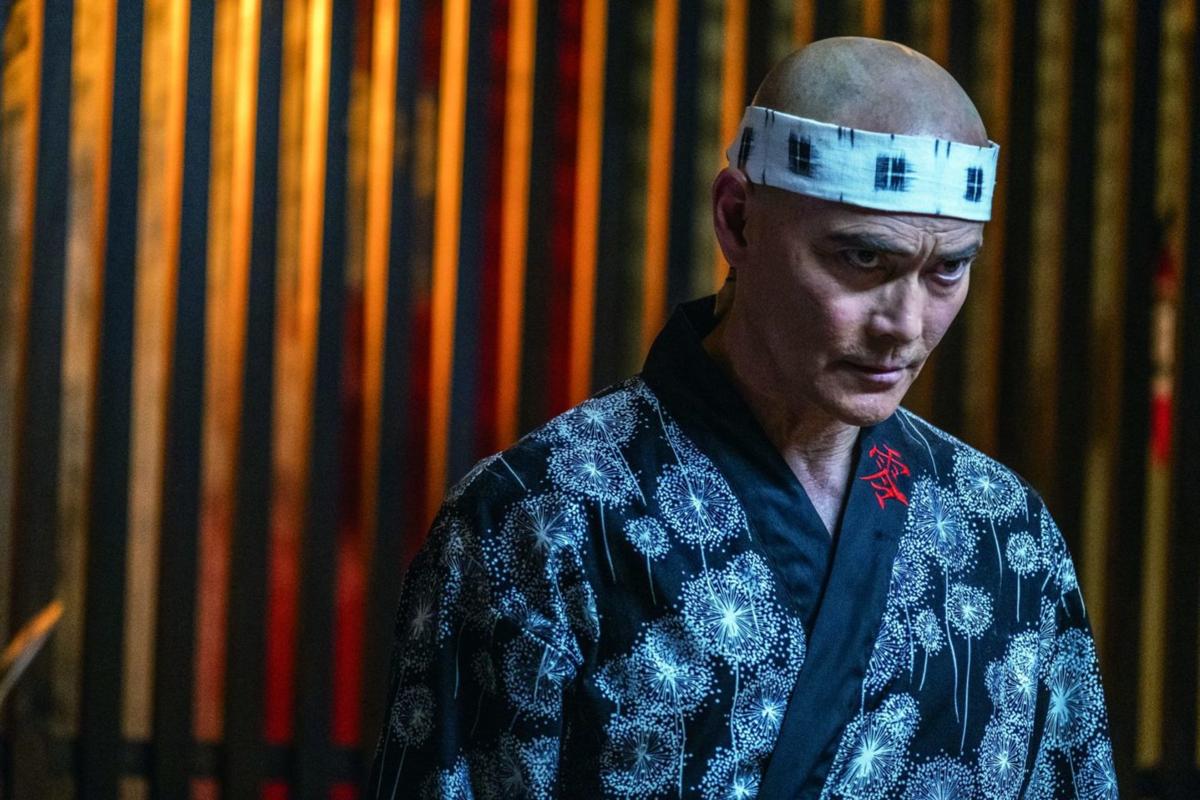 |
| This is Zero, John's primary fighting adversary in Parabellum. He's actually been my favorite so far, adding some levity to the intense fights. |
There's a very interesting possible path that this series may go down - the path of "tearing down the entire system." At this point in the overall story, I'm hoping that we now have the basic framework of the vast, rule-governed network that all of these criminals and killer operate within. John's arc so far suggests that he is ready to break free of it entirely, and he is now in the position where the only way to do so is to destroy it completely. This would be the logical - and extremely fun - path for the future movies to take. I recently heard that the plan is to film both the fourth and fifth movies together, so we can expect at least two more chapters in this "franchise." I'll definitely check them out, even if I'll go in expecting to grow a bit tired of the bloodletting if they go much beyond the hour-and-a-half threshold.
Friday, August 14, 2020
The Devil Wears Prada (2006)
Finally sat down with the wife to watch this oft-referred-to film. Not bad, and I can see why it generates a lot of discussion and debate, even nearly 15 years after its release.
The movie follows Andy Sachs (Anne Hathaway), an aspiring young journalist struggling to land work as a writer in New York City. Looking for any way to get her foot in some kind of door, Andy applies to become an assistant to Miranda Priestly (Meryl Streep), the brutally exacting and vicious editor-in-chief of an immensely popular and prestigious fashion magazine. Despite knowing and caring very little about fashion, Andy lands the job, agreeing to be Miranda's assistant for a year, in the hopes of getting a bulletproof recommendation for a job in journalism. After many rough growing pains and adjustment, Andy embraces the world of high fashion, along with the incessant and often boundless demands of her boss, eventually alienating her closest friends. By the end of the tale, Andy has learned Miranda's one great lesson to her: reaching the top of the world of fashion requires a ruthlessness and focus that Andy simply does not have. Still, Miranda helps her land a good job at a New York City newspaper, thus kickstarting her career as a journalist.
It's not hard to see why this movie is basically like mainlining heroin for anyone remotely concerned with fashion. You have a ton of great actors and beautiful people putting on great performances, nearly all dressed in flawlessly chic outfits, turning in great performances. Even more, these dynamic characters are all about the world of looking striking and powerful through your clothing. In short, if you dig really nice clothes, you'll dig looking at this movie. Of course, the film goes beyond this, digging into the essence of fashion (to an extent) and its greater place in society. This is what makes Andy's character essential. Like many of us, she's a fashion neophyte, so her entry into the world is our entry to the world, and it's handled well enough that even someone like me can find it interesting.
The greater reason that this movie was and still is so often discussed is the Miranda Priestly character and, to a lesser extent, her relationship with Andy. I see three aspects to Miranda that inspire debate: representing a successful woman in a cutthroat business, her management style, and her estimation of fashion's place in the world. Based on the Lauren Weisberger novel of the same name, The Devil Wears Prada is based on the author's time as an assistant to Vogue magazine editor Anna Wintour, so Weisberger had a first-hand look at a woman who makes it to the top of this very industry. The movie certainly suggests that a woman must be at least as ruthless as a man to reach such heights, even though it doesn't completely dig into this theme.
The more obvious (and entertaining for many people) element to the movie is how Miranda is a Hall of Fame-level "horrible boss," in that she's brutally demanding of Andy and everyone else around her. Because of her success in the fashion world, all of her employees are constantly on pins and needles, continuously attuned to her every word, movement, and gesture. With very few exceptions (such as Stanley Tucci's character), this all creates a palpable "terrified of Mom" vibe around the entire magazine. Many viewers find this comedic, but I almost always grow irritated when seeing or reading about such characters. My feeling is that anything that forces a person to become such an obsessive, exacting tyrant is unhealthy, and I have a hard time watching it happen, even in fiction.
 |
| Apparently, countless fans have weighed in on whether Andy's friends are good or horrible. Arguments can be made for both sides, but this actually speaks to a slight lack of depth in the film. |
I did enjoy that Andy ultimately turns her back on the fashion world. It does go some way towards suggesting that one's humanity is more important than pure success, especially conspicuous success. True to its nature, fashion is all about being seen a certain way, regardless of how true it is to the actual person putting it on display. This seems to be the moral of the story, if there is one, and I can get on board with that.
I'm glad that I finally got around to seeing this one, as it's so often referred to and is one that my wife has seen multiple times and enjoyed. I found it to be a well-made movie that raises some interesting themes. And while it doesn't dig into some of the more difficult questions as much as I might like, I appreciated the messy, grey areas that it included. Good movie, though not one that I'll feel the need to see again any time soon.
Wednesday, August 12, 2020
The Cabin in the Woods (2011)
I actually own this movie and gave it a rewatch - my fourth viewing of it since it came out. It's still a ton of fun, honoring so many great horror standards with its clever "meta" approach.
The movie follows five college friends as they take a weekend trip to the secluded, titular cabin in the woods. As they approach, things start to take turns very familiar to anyone who has seen popular and cult horror movies from the 1980s and later: the cabin is a dark and foreboding; there's an eerie basement with a vast assortment of creepy objects; and the overly curious visitors accidentally unleash hellish forces that seek to kill them all. Before the proceedings turn wildly violent, we also get some overt sexuality and dashes of budding romance. Again, very familiar tropes of the horror genre. What is new here is that, outside and above everything happening in and around the cabin, is a vast, bureaucratic organization that is orchestrating the entire thing. Their purpose is to stage the entire group execution, all unknown to the five victims, in order to appease a group of Lovecraftian "old gods" who slumber beneath the earth. These titans of evil and destruction only refrain from annihilating humankind if an annual ritual sacrifice is made in order to appease them.
The Cabin in the Woods is so entertaining, especially for horror fans. I'm not a hardcore horror aficionado by any means, but I've seen most of the standards and classics. I've also enjoyed many of the most frightening and clever films in the genre, like The Shining, the Evil Dead trilogy, and An American Werewolf in London, among many others, multiple times. Like many of the greats, The Cabin in the Woods, written by Joss Whedon, finds a perfect balance between giving you legitimate scares, making you laugh, and dazzling you with its mysterious and layered tale. Yes, the main five characters are loose archetypes of the typical slasher victims: the jock, the whore, the nerd, etc., but Whedon added more depth to them and made them genuinely funny and empathetic. They crack good jokes, and when things start to go horrifyingly haywire, we actually care.
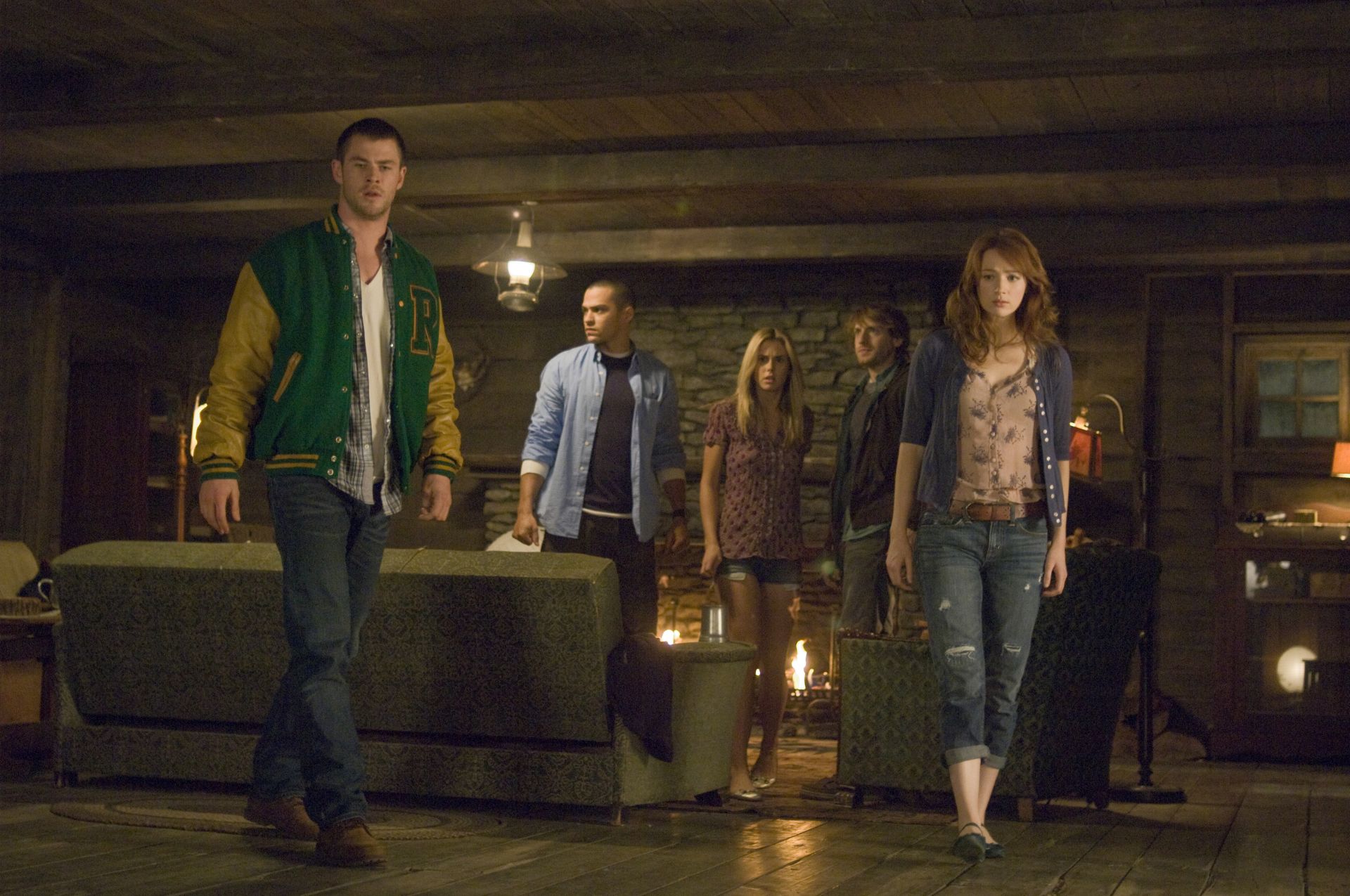 |
| Our five friends begin to sense something horribly amiss in their weekend getaway cabin. Things only get crazier, on many literal and figurative levels. |
The third act of this one is what really puts it over the top, though. Once the grand secret is revealed and the two "survivors" uncover the greater scheme at work, this movie supplies so many fun "Oh shit!" moments in the form of revelations, more creepy horror entities, and straight-up action. To cap it all off, it has the guts to supply a rather dark ending, something which I always appreciate, especially in horror movies.
Back when I first bought a blu-ray player, The Cabin in the Woods was one of two blu-ray discs that I purchased to break it in. I'm glad I did, as I've gone back to it every few years since, and I'll continue to do so.
Tuesday, August 11, 2020
The Great White Hype (1996)
Still a vastly underrated satire of the last gasps of boxing as a premier sport in the US.
Released in 1996 and obviously drawing heavily on the realities of the boxing world at the time, The Great White Hype tells the tale of the attempt to find a challenger to the current undefeated heavyweight champion, James "The Grim Reaper" Roper (Damon Wayans). But the problem is not that legitimate challengers don't exist - it's that the sport is rapidly fading in popularity, resulting in ever-decreasing profits for those who seek to profit from the once-wildly-lucrative industry. Seeking to crack this nut is Reverend Fred Sultan (Samuel L. Jackson), a Don King-like figure who is a shifty, manipulative promoter not above anything it takes to make a huge payday for himself. The grand solution, as he sees it, is to find a modern rarity - a white boxer who can square off against Roper and encourage greater interest through subtle and not-so-subtle race-baiting of the viewing public. The obvious problem, though, is that there isn't a decent white heavyweight fighter anywhere on the scene. The Sultan's solution? Concoct one. The Sultan and his team of sleazy underlings find heavy metal rocker Terry Conklin (Peter Berg), who had once beat the champion Roper when the two were amateurs. The rather dim Conklin hasn't fought in about a decade, but the Sultan convinces him to return to the ring, all the while whipping up a huge marketing campaign around the first black-versus-white heavyweight title bout in ages.
I hadn't seen this movie since my college days back in the mid- and late-1990s, when I watched it several times and would regularly quote it with my friends. While I would never argue that it's a "great" movie, I'm still somewhat baffled that it's not given more respect as a funny, clever sports satire. I was actually completely unaware of its theatrical release, despite its having several well-known actors like Samuel L. Jackson, Jeff Goldblum, and plenty of others. A little research shows that it wasn't very well received by critics at the time, and still sports very mediocre reviews on any major film ratings site. My only guess is that the R-rating and slightly loose feel to the film may have turned off some viewers. Also, being a satire of a notoriously seedy sports industry, the movie derives a lot of its humor and message from the darker aspects of human nature. There is also a chance that, like me the first time I watched it, viewers didn't know what to make of the ending. For my part, I hadn't picked up on just how satirical the entire story was meant to be, until a friend explained it to me. Once I understood that, the movie actually went considerably up in my estimation.
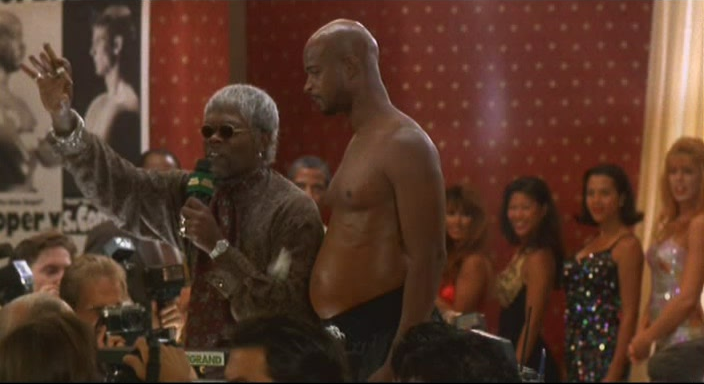 |
| The Sultan hyping up the fight in front of the champ, "The Grim Reaper" Roper. Roper's disdain for his opponent manifests itself as an utter refusal to even train for the fight. |
Sunday, August 9, 2020
Lost Highway (1997)
And Lynch gets Lynchier. If you're in the right mood, this is a very good thing.
This movie follows professional jazz saxophonist Fred Madison (Bill Pullman), who one day receives a mysterious VHS tape from an unknown source. This sets off a sequence of confusing and frightening events that lead to Fred's arrest for murdering his wife Renee (Patricia Arquette), a horrific act which is seemingly caught on tape but of which Fred has no memory. While in prison awaiting a death sentence, Fred inexplicably into a young mechanic, Pete Dayton (Balthazar Getty). A dazed Pete is released by the flummoxed prison warden and returns to his life at an auto repair shop. There, he restarts a relationship with an organized crime boss, the intimidating and brutal "Mr. Eddie" (Robert Loggia). Pete begins an affair with Mr. Eddie's mistress Alice, a platinum blonde lookalike of Renee Madison. At Alice's pleading, Pete begins taking revenge on Mr Eddie and others who Alice claims forced her into the pornography industry. Along the way, Pete transforms back into Fred, who completes the grisly task of killing Mr Eddie and his gangsters.
Lost Highway was David Lynch's seventh feature-length film, nearly all of which I've seen (except 1990's Wild at Heart). Of those first six films, I find Lost Highway to be the most distinctively his, featuring nearly all of the traits that film lovers associate with the eccentric filmmaker. There is mystery, murder, beautiful women, and at least one man stuck in the middle of sinister forces. There are also supernatural elements involving swapped personalities, possible doppelgangers, and even suggestions of time travel. In short, it's not a straightforward narrative or story in any traditional way. It's also the most sex-drenched of any of his movies, even the sometimes disturbingly graphic Blue Velvet. It can all be a bit much to take, if you're not in the right headspace for it. But if you are, it's a fascinating visual and narrative exploration of many primal, human forces that often seem to underscore Lynch's movies and shows. My attempts to unravel what, exactly, was happening with Fred Madison and his wife (?) had me pondering some deeper, more profound possibilities regarding sex and violence and how they can be intertwined. These are themes explored really well in the David Cronenberg classic A History of Violence, but Lost Highway offers us a dark, hallucinatory fantasy version of it.
Friday, August 7, 2020
Pee-Wee's Big Adventure (1985)
 |
| The movie poster tells you nearly everything you need to know: a goofy- looking guy, acting goofy and clinging desperately to his bike. That covers about 90% of this film. |
This movie is still an all-time classic of novel, silly, comic magic.
Pee-Wee's Big Adventure is the story of Pee-Wee (Paul Reubens), a man who wears a gray suit and red bowtie, but who usually acts very much like a child, including all of a 10-year old's joys, tantrums, pettiness, and enthusiasm. He lives in a garishly-decorated house filled with all sorts of toys and amusing contraptions, and his most prized possession is his classic, red and white bicycle - an object with which he has an intense, almost religious bond. When this object of his deepest affection is stolen, Pee-Wee goes on a cross-country odyssey to track down the one thing that means the world to him.
I must have seen this movie 15 or 20 times within the first year or two after it was released in theaters, back in 1985. Being between the ages of 10 and 12, I was the perfect age to fall in love with this movie, as quirky and silly as it was. Watching and listening to this bizarre, nasally, wildly overconfident fellow with his Peter Pan complex was hilariously hypnotic. Watching it now with my wife, both of us in our forties? Still hilarious, though for some slightly different reasons.
This was singular director Tim Burton's very first feature movie, and one could make a strong argument that it's still his best (Ed Wood is probably right there, too). We didn't know it at the time, but you could see his fingerprints all over it. The same visual and tonal fingerprints that we would see in Beetlejuice, Edward Scissorhands, his two Batman movies, and every film he's done in the 35 years since the Pee-Wee movie. In Big Adventure, he gets to thrust the manchild title character into the big, wide world, where he comes across all sorts of move archetypes: an escaped convict, a diner waitress with dreams of escaping to France, a motorcycle gang, and all sorts of others. The Pee-Wee character is fairly funny on his own, in his goofy way. But you throw him against other weirdos and outcasts, many of whom take themselves way too seriously? Comedy gold.
 |
| Pee-Wee and his first on-the-road "partner," Mickey. Every exchange between these two is hilarious and memorable, whether it's dialog or physical humor. |
If you don't like straight-up goofy movies, then stay away from this one. But if there's still any part of you that laughs like a crazy person when you see a 9-year old kid put their underwear on their head and start dancing for no good reason, then go back and watch Pee-Wee's Big Adventure. Whether it's the first time or the 50th time, you're going to get some serious laughs.
Wednesday, August 5, 2020
Bloodsport (1988)
A staple of my youth, this is one of the great "good-bad" movies offered during the 1980s and '90s.
Bloodsport tells the "true story" of mixed martial artist Frank Dux, a U.S. Army officer who took part in the infamous Kumite, an underground fighting competition held in Hong Kong. To honor his recently-deceased martial arts sensei, Senzo Tanaka, Dux enrolls in the Kumite, hoping to fulfill Tanaka's dream for his own son, who had died several years earlier. While evading U.S. government authorities who seek to pull him out of the illegal competition, Dux tears through the competition in the Kumite, including an epic final match against the intimidating and brutal reigning champion, Chong Li.
Bloodsport is a master class in poor plotting, lame scripting, and a lot of really, really bad acting. The cliches are almost endless, the plot holes baffling, and there are only two actors in the whole movie who actually know how to really act. So why do so many people still enjoy it, including me? Two reasons. The main one is the Kumite itself, and a secondary reason is that the movie accidentally fell into the "so bad it's good" zone that is often the mark of cult movies.
Let's get into the "bad." This was the very first starting role for Jean Claude Van Damme, the Belgian muscleman and "fighter" who flirted with being the next big action star in the late 1980s and early '90s. Thanks to his good looks, perfectly chiseled physique, and dazzling athleticism, he was the type of movie actor who many young people either wanted to be or to be having sex with. But it was all too clear from his performance in Bloodsport that acting was far from the forte of the "Muscles from Brussels." With a stilted delivery and odd intonation, it could be painful to see or hear him try to emote. He would get a bit better in this area as his career wore on, but only so much. In Bloodsport, it was still extremely rough. And the rest of the cast is almost universally as bad. The only two actors who come off as skilled pros are the ones who most audiences will recognize from other American movies: Donald Gibb (best known as the iconic "Ogre" from the Revenge of the Nerds movies) and a young Forest Whitaker. But even these legitimately capable actors could only do so much with the tepid script they were given. In a stroke of blind luck, though, the rest of the actors are so bad, and the script so cheesy, that much of it comes off as funny. Unintentionally funny, yes, but funny all the same. The combination of dopey dialog, delivered by bad actors in heavy accents results in tons of hilariously quotable moments.
The plot outside of the Kumite? Forget it. There are more than a few head-scratchers without answers that they're barely worth your time. Why the hell is Senzo Tanaka training his 8-year-old son to take part in a full-contact, underground fighting competition where people are known to have died? Who on earth is this Victor guy who just shows up to "manage" and guide Dux and Jackson? And on it goes. Add to that an uber-cheesy soundtrack and a few laughable "chase scene" segments, and the silliness goes off the charts.
 |
| Martial arts movie veteran Bolo Yeung, as the frightening Chong Li. He's not a sophisticated character by any means, but he's effective at making you pray that Dux beats him. |
Does the combat look "real"? Hell no. Unlike more modern fight movies, which often have studied actual mixed martial arts experts and incorporated them into the look and feel of action movies in the last twenty years, Bloodsport is more in line with old school, East Asian kung-fu movies or even pro wrestling. Nobody would actually win a fight trying to pull off the moves seen here. If Frank Dux tried a split-leg, flying roundhouse kick or Chong Li tried a 360-degree backhand against an actual MMA fighter, their clocks would be thoroughly cleaned in about five seconds. Movies like Bloodsport aren't about that. They're more like ballet movies for people who like fantasy violence. Yes, the characters on screen are trying to hurt each other. Badly. But there's a grace, power, and athleticism to the proceedings that can be captivating to watch. Bloodsport gets this part of it so right that it trumps all of the other painfully obvious weaknesses.
So this movie is still plenty of fun. While I've only ever seen about a half dozen of Van Damme's many movies, Bloodsport is probably still the only one that I can enjoy rewatching. Kickboxer I recall being decent, with some of the same strengths and weaknesses, but without the fun tournament structure of Van Damme's first.
Monday, August 3, 2020
Idiot Boxing: Black Monday, seasons 1 and 2 (2019-2020)
Set in the late 1980s mostly on Wall Street in Manhattan, we follow the fictional, wild and rebellious trading firm The Jammer Group, headed up by the brash and bombastic Maurice "Mo" Monroe (Don Cheadle). Exactly a year before the historically brutal stock market crash in October of 1987, Mo and his partner Dawn (Regina Hall) use shady means to hire the fresh-faced, aspiring young broker Blair Pfaff (Andrew Rannells). Pfaff, though a wide-eyed neophyte to the cut-throat world of the New York Stock Exchange, is engaged to the heiress of a massive denim empire which Mo and Dawn hope to acquire. This is just the first in countless underhanded schemes and plots that various greedy parties concoct in order to amass wealth. The first season ends with the market crash of 1987, while the second season follows most of the characters through the following year, as they deal with the massive fallout from the crash. Every step of the way, these financial predators do copious amounts of cocaine and hurl infinite crushing insults at each other.
I really liked the first season, but the second one flagged a bit for me. Maybe even to the point that I won't bother with any future seasons.
Anyone who watched Black Monday can't help but think of the Martin Scorsese film The Wolf of Wall Street, which also depicts much of the same unbridled greed and monstrous behavior of certain NYSE brokerage firms through the 1980s, '90s, and early 2000s. This show very much taps into that same vein, depicting the mad circus that can surround the ravenous pursuit of money. Tonally, the show usually operates on the same wavelength as the brilliant HBO show Veep, and it is clearly at its best when it does. The pop-culture-laced, lightning-quick, and ruthless insults really are the best thing about the show's writing, along with the constant reminders of just how garish tastes and fashion were at the time. As long as your OK with quick, clever jokes that are inappropriate in nearly every way imaginable, then you're bound to get some laughs.
 |
| The show does a good job early on of depicting the off-the- charts stress and the merciless heckling that goes on within Wall Street trading firms. |
The Interview, or comic-based fantasy show Preacher, these two genuinely funny fellows have often injected shock value into their productions where none was needed. Or at the very least, they've not always gotten the balance or the execution quite right. With Black Monday, the first season was very much like Veep, which always had a perfect sense of itself: never trying to be genuinely dramatic or overly serious in any way. Any only once or twice did I ever feel like the darkness overwhelmed the comedy. In the second season of Black Monday, though, we get a brutally, realistically bloody gunfight in a bank that kills multiple people, we have a horrifically crippled and disfigured rival of Mo slouching and slurring around offices, and some flat-out bizarrely twisted humor centering on incest. I like to think I'm a person who can laugh at a good joke about anything, as long as the joke is actually clever enough. Here, as with other shows of theirs, I think Rogan, Goldberg, and the other producers and writers mistook "shocking" for "funny" a few too many times. And the balance got noticeably worse towards the end of the second season, with more and more off-color and, in my view, unfunny gags.
If and when the show kicks off a third season next year, I may dip back in, to see if it's righted its course a bit. I hope so, since I enjoy the cast and a decent amount of the writing. But if I tune in and the first episodes offer me suicides and gory tragedies, like the second season did, then I'm out.
Saturday, August 1, 2020
The Social Network (2010)
Slick dramatization of the construction and meteoric growth of facebook, as told through a focus on its founder, Mark Zuckerberg.
Rather than a Zuckerberg biopic, this movie covers Zuckerberg's initial conception of some of facebook's foundational elements while a student at Harvard, the months he spent building the site, and the year or so immediately after, when the site grew at a freakishly exponential rate to quickly become a global phenomenon. It also happened to make Zuckerberg, then still barely in his mid-twenties, one of the richest people on the planet. The movie also depicts Zuckerberg as pulling a few semi-shady tricks, such as "borrowing" parts of his original concept from a pair of fellow Harvard students and elbowing out his former friend and initial investor in the site, Eduardo "Wardo" Saverin. Woven throughout the film are moments taking place in law offices, presumably a few years after facebook has exploded into a multibillion-dollar company, where Zuckerberg fends off lawsuits from people who seem to have some case for being owed at least some of Zuckerberg's immense wealth from the site.
This was actually the second time I watched The Social Network, and I still have some mixed feelings about it. This is true of all "biopic" or "based on real people and events" kinds of films or TV shows to me - one can never really know where reality ends and "artistic license" begins. And frankly, that's always far more palatable when we're dealing with long-dead people, such as the John Adams mini-series that recently rewatched and reviewed. Not to mention that that show was meticulously researched, based on reams of documentation. The Social Network, on the other hand, is about people who are all still very much alive and barely into middle age. More than that, though, is that there was very clearly some license taken to mold these real people more into more dynamic characters for a dramatic movie, rather than to offer authentic portrayals of them. This "punching up" of people never sits terribly well with me, and I can never shake the notion that many, many people watch such movies and equate it with reality - a very dangerous effect.
With all that said, I want to give my thoughts of the movie mostly as a dramatization. Yes, it has much larger themes that go well beyond the individuals involved, and those transcend however one might feel about using living people's lives as fodder for a scripted drama. My thoughts on the human-centered elements, though, will stay focused on the narrative and cinematic elements.
Fight Club, Se7en, and Gone Girl.
The dramatic elements are, I must admit, brilliantly crafted. I do want to emphasize that word - "crafted." While these are based on real people and real events, I didn't have to do any research to be pretty sure that the characterizations, words, and specific actions of every one were either exaggerated, massaged, or completely fabricated in the name of drama. I must say, though, that it works really well. Zuckerberg is portrayed as a pretty despicable, insufferably arrogant little man. His general intelligence and genius as a computer programmer are undeniable, but the movie makes it abundantly clear that its version of him is a guy who, shunned by his girlfriend, basically creates facebook in the throes of a petulant, misogynistic hissy fit. There are some glimmers, especially early in the movie, of a person who does have grander ideals about opening up communications to the betterment of humankind, but these aspects of his character are mostly kept on the backburner. For the most part, Zuckerberg is shown as a guy who feels spurned by women, condescended by richer and more popular people, and who is more interested in being right than in truly being loved. It's not exactly novel to dream up the "nerd who holds a grudge against those who overlooked him," but it is an interesting paradox to show that nerd become wildly rich and famous by building a system that is meant to help people open up to one another. And therein lies some of the depth of the movie. Made in 2010, only about five years after facebook's initial launch on a large scale, the world was still only just coming to realize that social networking sites were not exactly the utopias of human connection that many had hoped and believed they were or would be. And now, a solid 15 years after facebook's explosion onto the world scene, the questions it raises only become more imposing.
A final thought on Aaron Sorkin's writing, and it's the same thought that I express regarding screenwriters who are the "dialog wizards" of the movie world. For a while, the three who have always come to my mind have been Sorkin, Tarantino, and Joss Whedon. Such writers are wonderfully clever and have fantastic minds and ears for snappy, catchy, and often hilarious dialog. Film after film, these writers have provided us with endless "quotable quotes" and memorable scenes, almost always from sharp, witty characters of their creation. However, such dialog magic can often threaten to trump the actual story or anything else happening on the screen, resulting in a sense that moments are contrived or manipulated just so a character can deliver a good zinger that the writer was proud of. It can also result in lines that may not sound natural from the mouths of a particular character. I had this feeling during much of The Social Network, with nearly every single character having just the right lightning-quick, whip-smart retort to whatever someone else says. While it makes sense to have a slighted, genius-level intellect like a Mark Zuckerberg have two dozen back-breaking insults loaded in the chamber at any given moment, it feels a bit less authentic coming from the more mundane, "normal" people in the movie. Sorry, but not everyone in the words has a bottomless bag of quips and biting remarks eternally on hand, and it can strain credibility to present such a world. I have a ton of respect for writers like Sorkin, as they come up with so many genuinely great lines. I just wish they were a bit more economical with them, as the overuse of their witty dialog ends up creating an overly polished sound to the proceedings.
By any standard of a movie in and of itself, The Social Network is great. As a work meant to portray very real, still-living and still-evolving people and events? It can be misleading at best. Either way, it's worth viewing and discussing at least once.
Thursday, July 30, 2020
John Adams, TV mini-series (2008)
Based on the book by best-selling biographer David McCullough, John Adams is a 7-part mini-series that dramatizes the many key actions, momentous occasions, and shifting relationships in the long life of the U.S.'s second president. It was this show that taught me, along with probably millions of other people, just how many critical moments in U.S. history involved Adams in one way or another. It's not always dramatic, often depicting Adams's moments of intense boredom and isolation from more important events. And there are plenty of moments dedicated to his relationships with his wife and children, which can often be slower and more tender. But if you enjoy a sense of an authentic, well-rounded look at an important historical figure, then it's hard not to like this.
The show is divided into its seven episodes based on fairly distinct periods in the life of John Adams and the country:
- His time as a respected lawyer in Boston, before the actual start of the Revolutionary War.
- The events that build up to the Founding Fathers deciding to declare Independence from Britain, officially declaring war against the most powerful army in the world.
- The Revolutionary War, most of which Adams spent in Europe trying to gain support from potential ally nations such as France and Holland.
- After the U.S. defeats the British, Adams is back in the U.S., representing Massachusetts and negotiating with other states' representatives to form the new government.
- Adams's eight years as the country's first vice president, serving under George Washington.
- Adams's single four-year term as the country's second president.
- Adams's twenty-five years of post-presidential "retirement," mostly back on his farm in Massachusetts.
 |
| George Washington's inauguration in Philadelphia. David Morse's turn as the country's quiet but beloved first president was just one of the countless great performances throughout this series. |
All of this is brought to life through amazing film techniques and production values, on every possible level. The acting is impeccable, with Paul Giamatti turning in a masterpiece performance as the stocky, snarling, combative man of rule and law. Playing his wife - noted mind Abigail Adams - was Laura Linney, who exhibits every bit of the intelligence, tenderness, and toughness that the real Mrs. Adams apparently had. And every one of the many supporting actors nailed their roles, from the most famous to the lesser-knowns and unknowns from over two centuries ago. If you know anything about this time period, there's plenty of fun to be had in seeing how founders like Franklin, Washington, Jefferson, Hamilton, and others are depicted, and there's plenty to be learned about those people we don't read much about in our history books in school.
The writing is incredible. While the show is based on David McCullough's biography, the scripts were all written by Kirk Ellis, who seemed to have a brilliant eye and ear for distilling key moments into efficient scenes, taught with gravity and emotion. My wife, a poet with an especially keen ear for anachronistic language, was extremely impressed by the authentic diction used throughout the show. This was probably due in part to Ellis's drawing from Adams's and others' original notes and correspondences. However it was done, there's a wonderfully genuine, erudite sound to the dialogue that reminds us of just how learned and articulate this country's leading minds were at the time.
The only thing about this entire show that got to me a bit by the final couple of episodes was a minor visual element - that the show uses a ton of closeups. And I don't mean regular closeups. I mean "you can count each scraggly hair in Paul Giamatti's nostrils and ears" kind of closeups. For much of the show's length, this shoulder-to-shoulder proximity works well to convey intimacy, but there was a point where it eventually made me feel a bit claustrophobic.
This is just a great show, and it always will be. I would love to see the same treatment given to several other key figures in this country's history, or any country's history for that matter. Short of reading a thorough biography of a key historical figure, this is maybe the best example of how to tell such a story in cinema.
Tuesday, July 28, 2020
Blue Velvet (1986)
Pretty riveting, dark neo-noir type film which is the most accessible film I've seen from noted surrealist David Lynch.
I recall watching this one once before, about 20 years ago, though I had zero recollection of the second half of the movie. This means that I either fell asleep, or that I left the friend's house where we were watching it before it was over. Whatever the case, I'm happy that I finally went back to it.
The movie follows Jeffrey Beaumont (Kyle MacLachlan), a young man who returns to his cozy American town from college after his father is hospitalized after falling ill. While walking in a field near his neighborhood, Jeffrey makes the grisly discovery of a human ear lying on the ground. He takes the ear to the police, but can't seem to leave it at that. With the help of a police detective's daughter, Sandy (Laura Dern), he employs some amateur sleuthing techniques to dig deeper into the mystery. Before long, he is wrapped up with the sultry lounge singer Dorothy (Isabella Rosalini) and a maniac criminal, Frank (Dennis Hopper). Jeffrey is inexorably pulled into a dark, underground criminal world filled with drugs, violence, and depravity of a level that belies the otherwise peaceful-seeming town.
Blue Velvet is still pretty hypnotic, even after nearly 35 years, and certain elements almost seem like a practice run for some of what we would see in the original Twin Peaks TV show 4 years later. The most obvious one is the notion of dark, twisted forces lurking beneath the tranquil, All-American, white picket fence veneer of the setting. You have the attractive young couple in Jeffrey and Sandy, who seem to be falling in love, and we see more than a few nods to the idealist view of relationship from American suburbia from the 1950s and early '60s. It doesn't take long, though, before things get weird. Like, really weird. No sooner does Jeffrey sneak into the lounge singer Dorothy's house for some intel on a possible murder than he finds himself in a closet, peeping on her undressing, then seeing her brutally victimized by the unhinged, sexually warped madman, Frank. This dizzying dichotomy of light and dark has long been a part of David Lynch's works, and Blue Velvet was his earliest and probably still his most accessible example of it.
Then there are the technical merits of Blue Velvet. The movie just looks so good. And I don't mean to say that it's easy or always pleasing to watch. It's not. There are just too many disturbing and violent behaviors going on to say that you "enjoy" watching it. Still, it doesn't take an expert to see that the costumes, lighting, sets, and cinematography are masterfully designed and executed. There's such a rawness to most of the scenes involving Frank that most films won't employ. When Frank is terrorizing then raping Dorothy, there are no edits or camera maneuvers to spare the viewers of just how horrific he is. Similarly, when Jeffrey is basically abducted to the apartment where Dorothy's child is being held captive, there is such a skeevy, dangerous vibe that one can't help but feel like Jeffrey has ended up in some deceptively drab-looking circle of Hell. An easily overlooked part of these disturbing sequences is the lack of music, creating a silence that intensifies the horror. On the flip side, there are other scenes and moments that are very lush and stylized, showing off Lynch's range of techniques.
Like every David Lynch movie I've seen, I can only recommend it to people who are ready for something that's more than a little odd, twisted, and challenging in some respects. While the over-arcing story follows your typical crime thriller, the telling is much grittier, bizarre, and in your face than more popular fare in the genre. The best starting place for those who haven't seen Lynch's work is the original Twin Peaks TV show. If the darker elements of that program don't freak you out, check out Blue Velvet. From there, Lynch's work mostly gets darker and more surreal, so it's a logical next step.
Sunday, July 26, 2020
Spaceship Earth (2020)
A documentary about the then-hyped Biosphere 2 project that ran from 1991 to 1993. It was just OK.
Those of us born before 1980 or so probably remember the Biosphere 2 project, staged in Arizona in the early 1990s. Seven "biospherian" specialists locked themselves in a large, airtight structure for two years, to see if they could survive in a simulation of what might be a life station used to live on and explore other planets in the future. The biosphere was filled with various terrain types, plants, and even animals, to replicate small-scale versions of Earth's real landforms, structures, and ecosystems. It was billed as an exciting leap forward in scientific discovery - one which would provide invaluable data to future scientists who would be designing life-sustaining environments for space explorers. What Biosphere 2 ended up being, though, was mostly a failure that many ultimately saw as a fraud, conceived and executed in bad faith by a controversial, cult-like figure.
There was actually the material here for a much more fascinating documentary. In going back to trace the origins of Biosphere 2, some intriguing questions are raised. It mostly went back to a man named John Allen, a charismatic, endlessly energetic man who built a community around himself in the late 1960s. Allen, trained as a machinist in the Army Corps of Engineers and educated in anthropology and business in several places including Stanford, had grand ideas about melding multiple scientific and humanistic disciplines in order to create a better society. This society would bring together scientists, tradesmen, and artists to cooperate in order to build whatever they felt they might need to survive, thrive, and fulfil their survival and creative needs as humans. They set up a commune-like area in New Mexico. They actually built their own large ship that successfully launched from a port off the California coast. They traveled to different cities around the world and constructed buildings as contractors. And all the while, they would engage in free-flowing artistic performances, such as original plays, improvisational activities, primal screaming, interpretive dances, or whatever else they dreamed up. All of this was under the eye of founder John Allen. Early on, they had actually come into contact with famed American architect R. Buckminster Fuller. Fuller had conceived of the concept of a "geodome," in which humans could survive without any contact from the outside world. Allen's group toyed with this over the years, and eventually found the financial backing to bring it to life. Hence, Biosphere 2's construction and the media storm around it in the early 1990s.
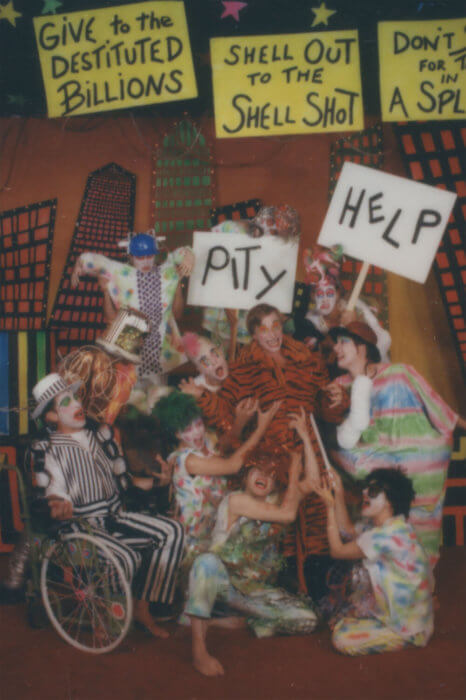 |
| John Allen's "Merry Pranksters"-style group of devotees doing one of their stage productions. This was a rather odd crew of folks who I had far more questions about than the film answered. |
In a more general sense, I came away from this documentary sort of shrugging my shoulders and almost asking "so what?" By the show's end, it was clear that too many questions were raised about Biosphere 2's scientific legitimacy for it to feel like any massive loss for humans' knowledge. And not enough evidence is presented to contradict the notion that Biosphere 2 was much more than an ego-driven project for Allen and a few wealthy financial backers. In short, while I was curious about several elements covered in the documentary, I'm never given enough information to care all that much about any of them.
Maybe the simple fact is that the subjects themselves - from Allen to the commune to the Biosphere 2 project itself - just weren't nearly as intriguing as we might be led to believe. But I actually felt that there is probably a more fascinating story to be told; it's just that Spaceship Earth didn't do the best job of telling that story.



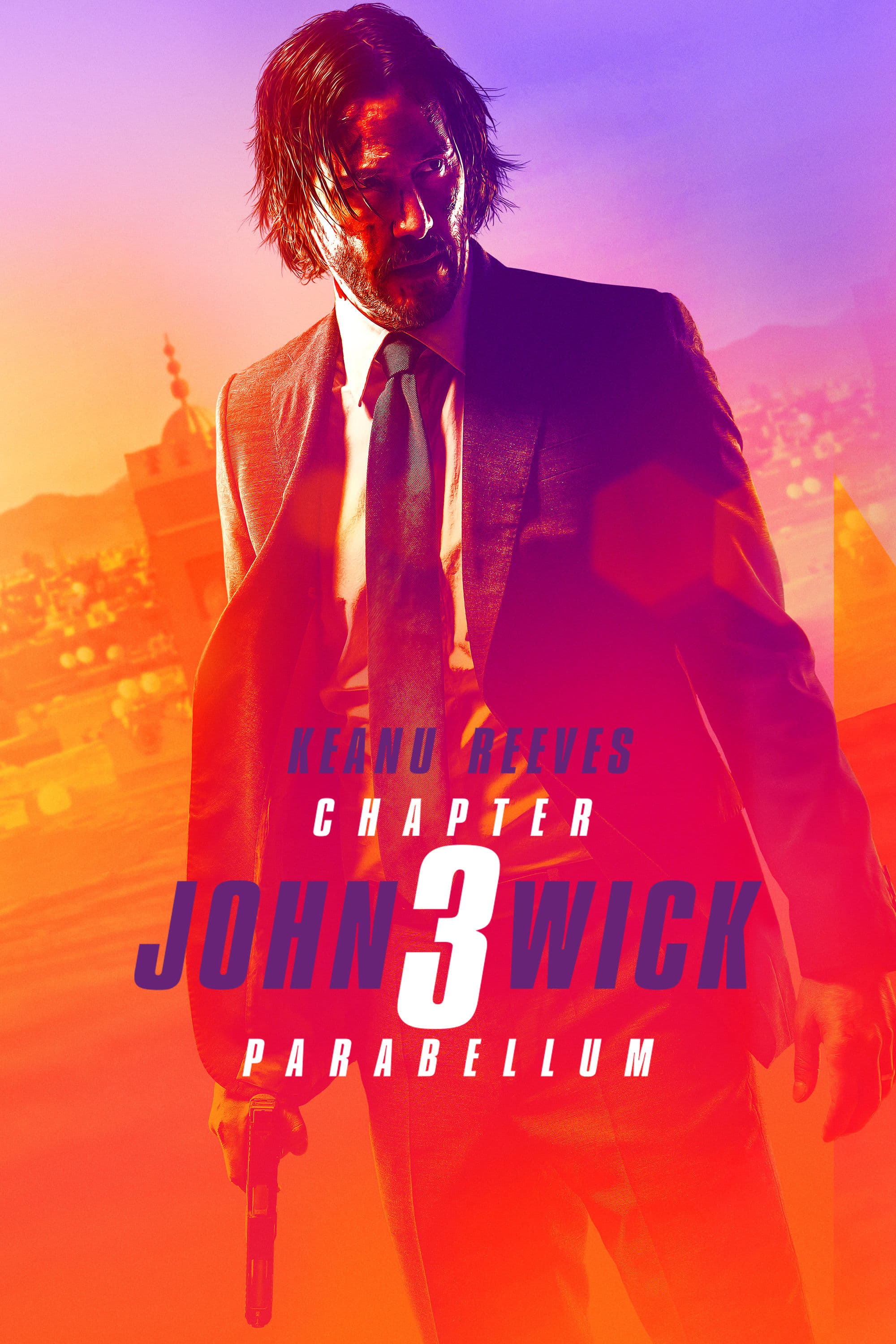
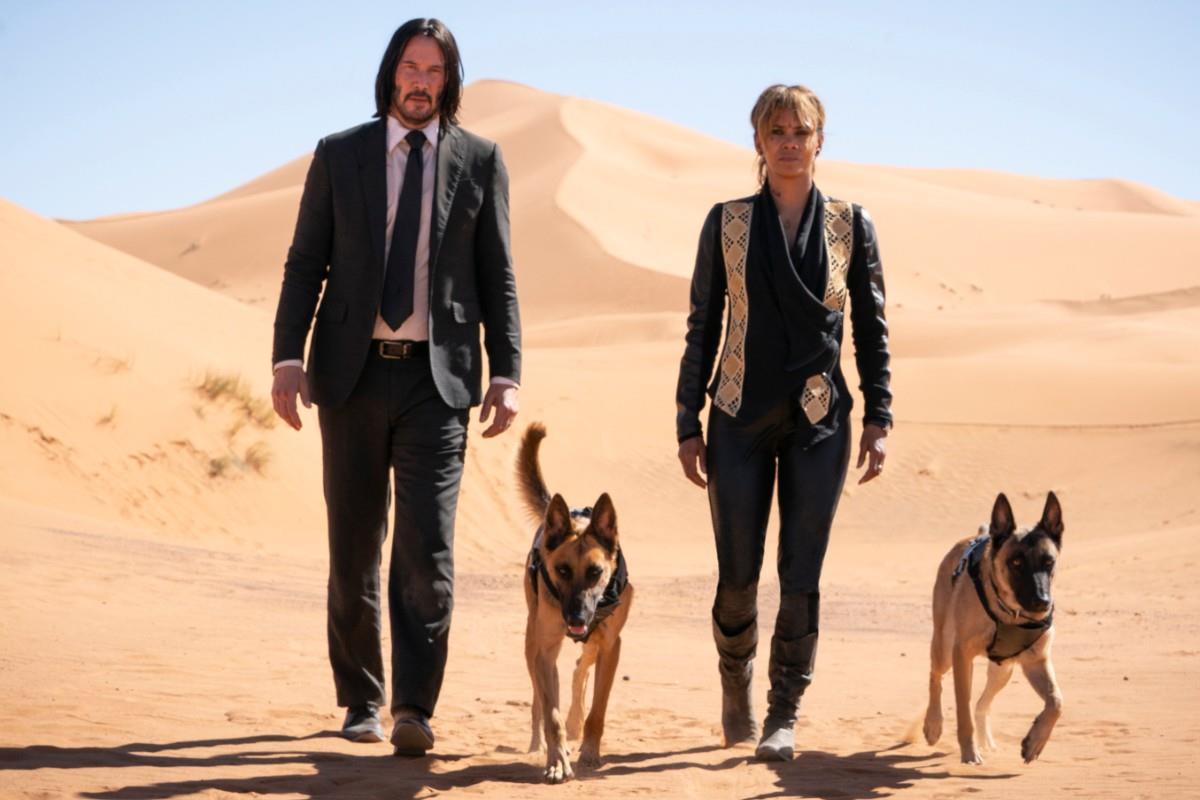

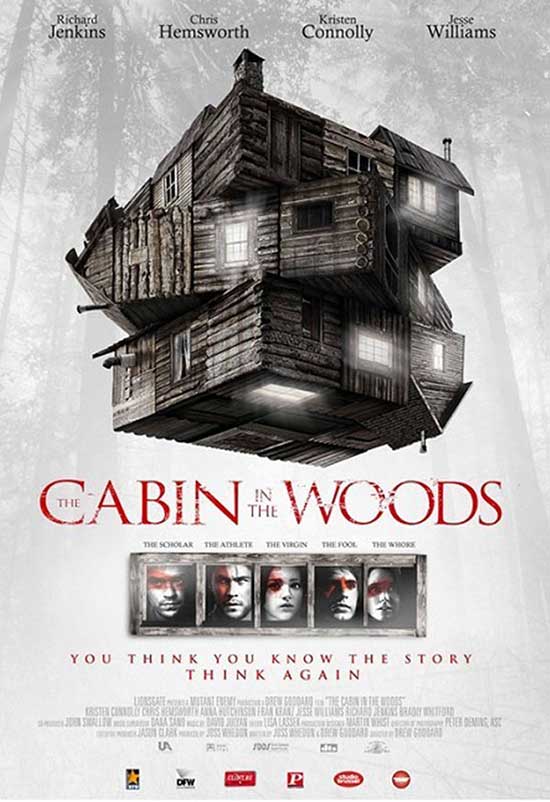
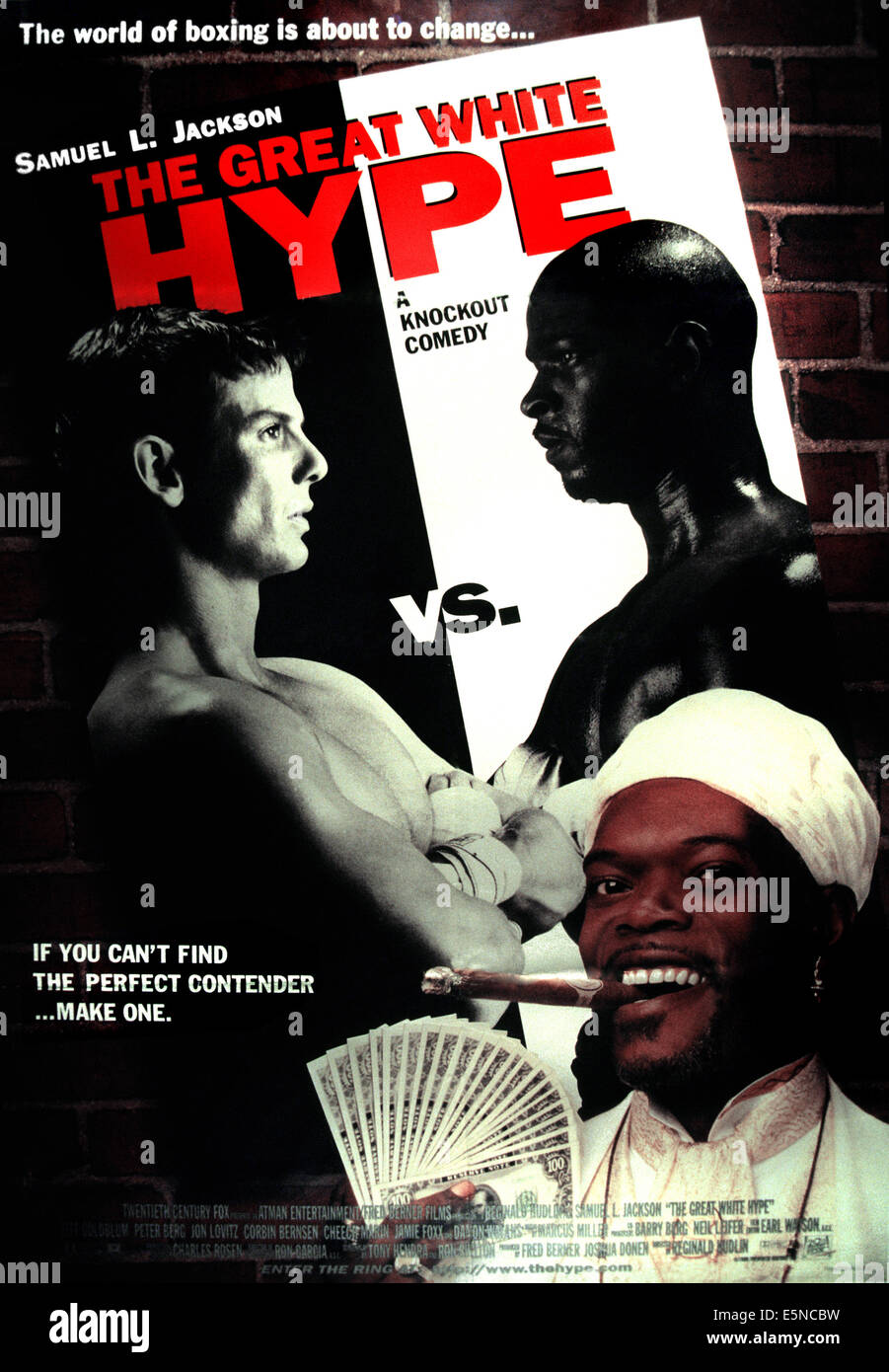
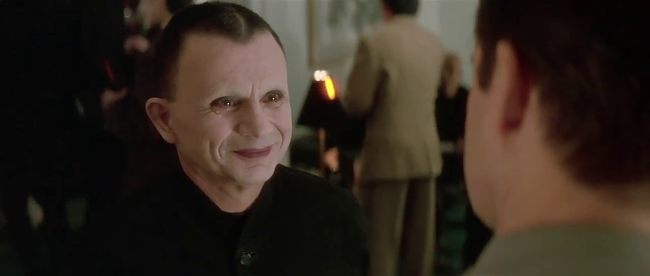

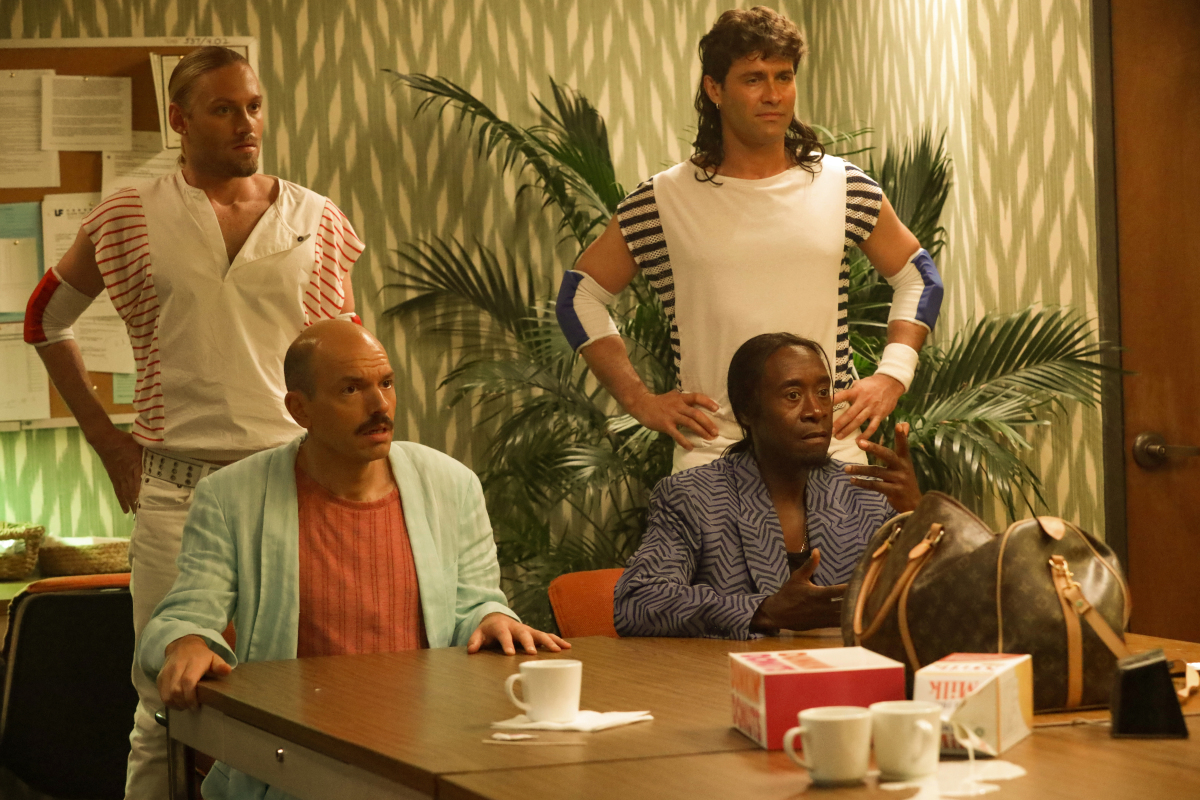


/cdn.vox-cdn.com/uploads/chorus_image/image/53737885/Screen_Shot_2017_03_16_at_11.53.09_AM.0.png)


